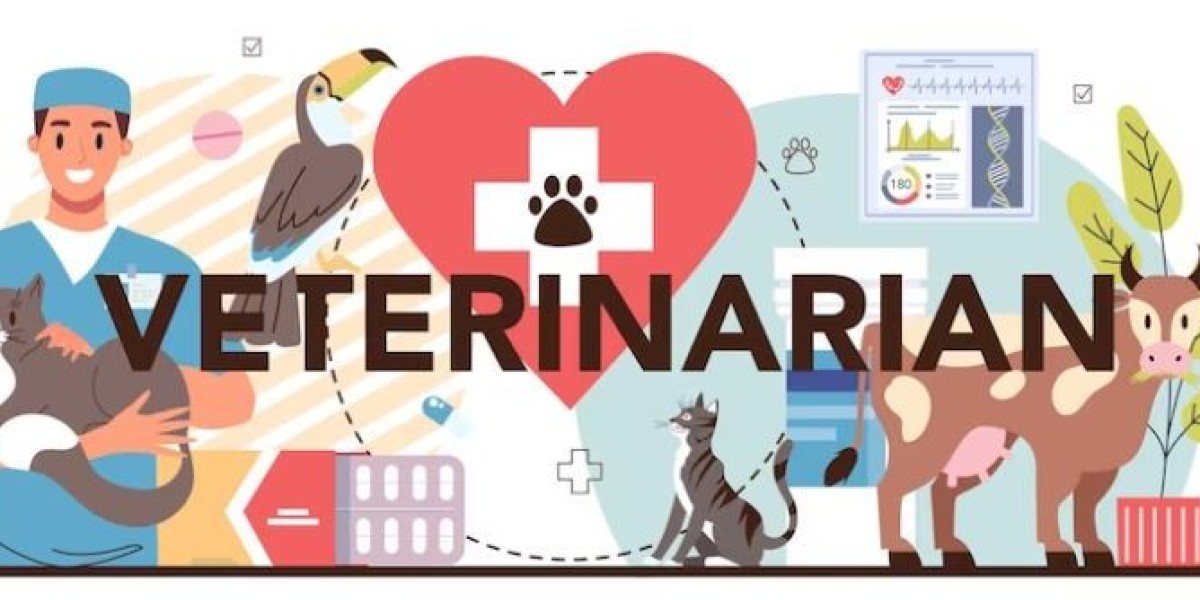In the heart of Palm Springs, a new approach to veterinary care is making waves—veterinary compounding. This innovative practice allows veterinarians to provide tailor-made medications for pets, ensuring their unique needs are met effectively. From cats and dogs to exotic animals, compounding opens doors to improved treatment options. In this article, we'll delve into the world of veterinary compounding in Palm Springs, exploring its benefits, the compounding process, and why it's becoming a game-changer in pet healthcare.
- Introduction
The welfare of our beloved pets is paramount, and Palm Springs veterinarians are embracing new approaches to ensure their well-being. One such approach is veterinary compounding, an art that combines veterinary medicine with pharmaceutical expertise.
- What is Veterinary Compounding?
Veterinary compounding involves the creation of customized medications for animals. Unlike mass-produced medications, compounded drugs are formulated based on specific requirements, such as the animal's size, condition, and preferences. This personalized approach allows for more effective treatment outcomes.
- The Advantages of Compounded Medications
The benefits of compounded medications are manifold. By tailoring the medication's strength, form, and administration method, veterinarians can ensure the best possible results for their patients. This is particularly valuable for animals with allergies, sensitivities, or those who need unique dosages.
- The Compounding Process
The compounding process begins with collaboration between the veterinarian and a compounding pharmacist. After assessing the animal's needs, the pharmacist combines the necessary ingredients to create the medication. This may involve altering the dosage form (e.g., turning a tablet into a liquid), adjusting the strength, or removing certain allergens.
- Tailoring Medications for Different Animals
Compounding isn't limited to common household pets. It extends to all creatures, from reptiles and birds to small mammals. This versatility ensures that every animal receives treatment that suits their physiology.
- Addressing Dosage Issues
Pets come in all shapes and sizes, which can pose challenges when administering standardized medications. Compounded medications resolve this issue by allowing precise dosing, regardless of an animal's size or weight.
- Flavor Customization for Better Administration
One common struggle pet owners face is convincing their furry friends to take medications due to unpleasant tastes. Compounding pharmacists can create flavored medications that animals find palatable, making the administration process smoother.
- Overcoming Commercially Unavailable Medications
Sometimes, the medication required for a specific condition might be discontinued or unavailable commercially. Veterinary compounding steps in to recreate these medications, ensuring pets can continue to receive essential treatments.
- Collaboration between Veterinarians and Pharmacists
The success of veterinary compounding relies on effective communication between veterinarians and compounding pharmacists. This partnership ensures that the medication aligns with the animal's treatment plan.
- Ensuring Pet Compliance and Comfort
Pets, like humans, can be averse to certain medications. Compounded medications increase compliance by addressing issues such as size-appropriate dosing and easier administration methods.
- Safety and Quality Control in Compounding
Compounding pharmacies adhere to strict quality control measures to guarantee the safety and efficacy of compounded medications. This includes sourcing high-quality ingredients and employing rigorous testing.
- When Veterinary Compounding is Necessary
Veterinarians turn to compounding when standard medications don't meet an animal's needs. This could be due to allergies, sensitivities, or unique conditions that require specially formulated drugs.
- Potential Risks and How to Mitigate Them
While rare, there are risks associated with compounding, such as dosage inconsistencies. However, with proper collaboration and communication, these risks can be minimized.
- The Role of Veterinary Compounding in Specialty Care
In specialty veterinary care, such as oncology or dermatology, compounded medications play a vital role. They allow for precise treatment that aligns with the complex nature of these conditions.
- The Art of Flavor Customization
Veterinary compounding extends beyond formulation; it also caters to the palates of our furry friends. Compounded medications can be tailored to taste preferences, which greatly simplifies the administration process. Whether it's a chicken-flavored liquid or a beef-flavored chewable, these personalized options make giving medications a breeze.
- Innovations in Veterinary Compounding Technology
As technology advances, so does the field of veterinary compounding. Cutting-edge techniques and equipment allow compounding pharmacists to create medications with even higher precision and quality. From advanced compounding machines to computer-assisted formulation, innovations continue to enhance the capabilities of customized pet medications.
- Collaborative Care: Veterinarians and Compounding Pharmacists
The synergy between veterinarians and compounding pharmacists is at the core of successful veterinary compounding. The seamless exchange of information ensures that the medication aligns perfectly with the pet's condition and treatment plan. This collaboration leads to optimal outcomes and reinforces the importance of a multidisciplinary approach to pet healthcare.
- Mitigating Risks and Ensuring Safety in Veterinary Compounding
While veterinary compounding offers numerous benefits, it's essential to address potential risks. Dosage inconsistencies, contamination, or improper formulation can occur if not managed carefully. However, reputable compounding pharmacies strictly adhere to regulations, employ quality control measures, and maintain transparency to ensure the safety and efficacy of compounded medications. Regular audits and oversight contribute to a culture of accountability and reliability.
Conclusion
Veterinary compounding in Palm Springs is revolutionizing pet healthcare, offering tailored treatment options that enhance the quality of life for our animal companions. By collaborating closely with veterinarians, compounding pharmacists are contributing to a brighter and healthier future for pets.








